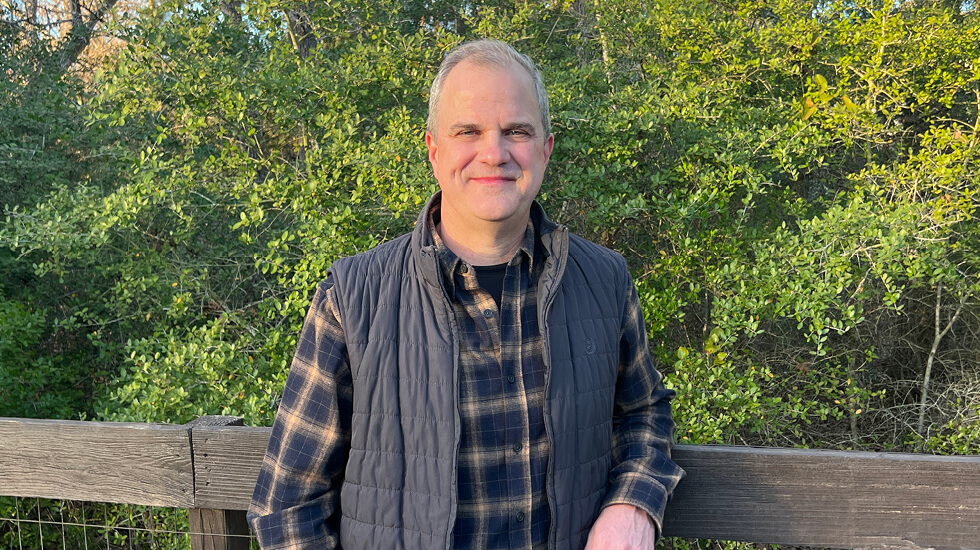Student Helps Combat the Trauma of War Through Regent’s Ukraine Institute
Steve Beatty, Ph.D. Student, SPC ’25

On October 7, 2023, terrorists killed more than 1,200 people and kidnapped 240 hostages during unprecedented attacks inside Israel. It was the deadliest assault on the Holy Land since the Yom Kippur War in 1973.
Regent University’s Ukraine Institute of Education in Psychology and Counseling responded to the violence, terror-induced trauma and ongoing fears associated with the war in Israel by offering Immediate Stabilization Procedure (ISP®) training and practicums via video conference. Developed by psychiatrist Dr. Gary Quinn, M.D., from the EMDR Institute of Israel, ISP® is a first-response intervention intended to psychologically stabilize a victim in a matter of minutes.
Regent professor Dr. Olya Zaporozhets, the Ukraine Institute’s director, says: “Due to the experience, research, and on-going trauma work in Ukraine, more than 140 psychotherapists in Israel were able to receive the training and begin administering assistance within two weeks of the initial attacks.” She adds that those affected by the attacks were “experiencing overwhelming stress levels, even levels of hysteria and catatonia.”
The purpose of this early intervention therapy is to stabilize an overwhelmed victim, breaking the loop of repeating a negative experience in hopes of preventing post-traumatic stress disorder (PTSD). ISP® can be administered quickly by someone without a mental health degree, but initial training in the technique is best provided by a licensed, mental health professional.
“Like in Ukraine,” Zaporozhets explains, “the Institute is continuing to collaborate with mental health professionals in Israel to assist while gaining new information about terror-induced trauma to improve intervention techniques like ISP, even on the front line.”
Steve Beatty (SPC ’25), a Ph.D. student in Regent’s School of Psychology and Counseling, worked with Dr. Zaporozhets and Dr. Quinn to provide ISP® training to nine Operation Blessing (OB) employees in the Philippines before they deployed to Israel in November. Using Zoom, they taught the crisis-response team how to use ISP® to provide trauma-counseling interventions, as part of their relief efforts in the Holy Land.
Dr. Zaporozhets says, “The motivation of this non-clinical team to be trained in ISP was from a psychological-first-aid perspective and has since strengthened their consideration to expand training for Operation Blessing.”
“Very shortly after the Hamas attacks, people started hearing about this technique,” Beatty recalls. “They were reaching out asking us if we can provide assistance in ISP® training.”
In addition to being a doctoral student, Beatty is also a licensed mental health counselor with a private practice in College Station, Texas, who’s researching and implementing ISP® as part of his doctoral studies. He says the early intervention therapy has been used successfully to help people in Ukraine after the Russian invasion in 2022 and other people in crisis worldwide.
“Working with Dr. Quinn, a few of us in the program helped incorporate additional protocols and training discovered while working with Ukraine psychologists,” Beatty shares. “When people in immediate stages of psychological distress are off the charts, how do we stabilize them before we provide treatment? That’s where ISP® comes in. It’s also preventative. We’re trying to keep trauma from taking root.”
Following high school, Beatty served in the U.S. Navy for seven years active duty. He then went on to earn dual bachelor’s degrees in electrical and biomedical engineering. After putting those credentials to work in the tech world for another decade, he felt God calling him to a career in counseling. About a year after receiving his master’s degree from Dallas Theological Seminary, Beatty was led to pursue a Ph.D. from Regent.
“The two areas where I’ve spent most of my time developing as a doctoral student have been Ukraine and Israel,” he explains. “I don’t know of any other school where I would’ve gotten the opportunity to do that. Regent is not just theory and academics. The university provides practical knowledge and experience.”
Other Regent University Ph.D. students who have contributed to ISP® development include Nina Kaufman (SPC ’25) and Miya Moore-Felton (SPC ’25). Beatty says, through the publication of peer-review articles, they’ve been able to influence the mental health profession as Christian leaders to change the world.
As a scholarship recipient, Beatty is grateful for the financial assistance he receives that makes it possible for him to attend Regent. He says donors “pouring into” students like him make all the difference. Their generosity is not only greatly appreciated; it’s appreciating, like a long-term investment, in the lives of students.
“I would not have been able to do this without their support,” Beatty insists. “I really feel like I have people in my corner I don’t even know, who are hoping I’m going to make a difference as a Christian leader to change the world. To me, that’s an eternal investment.”


